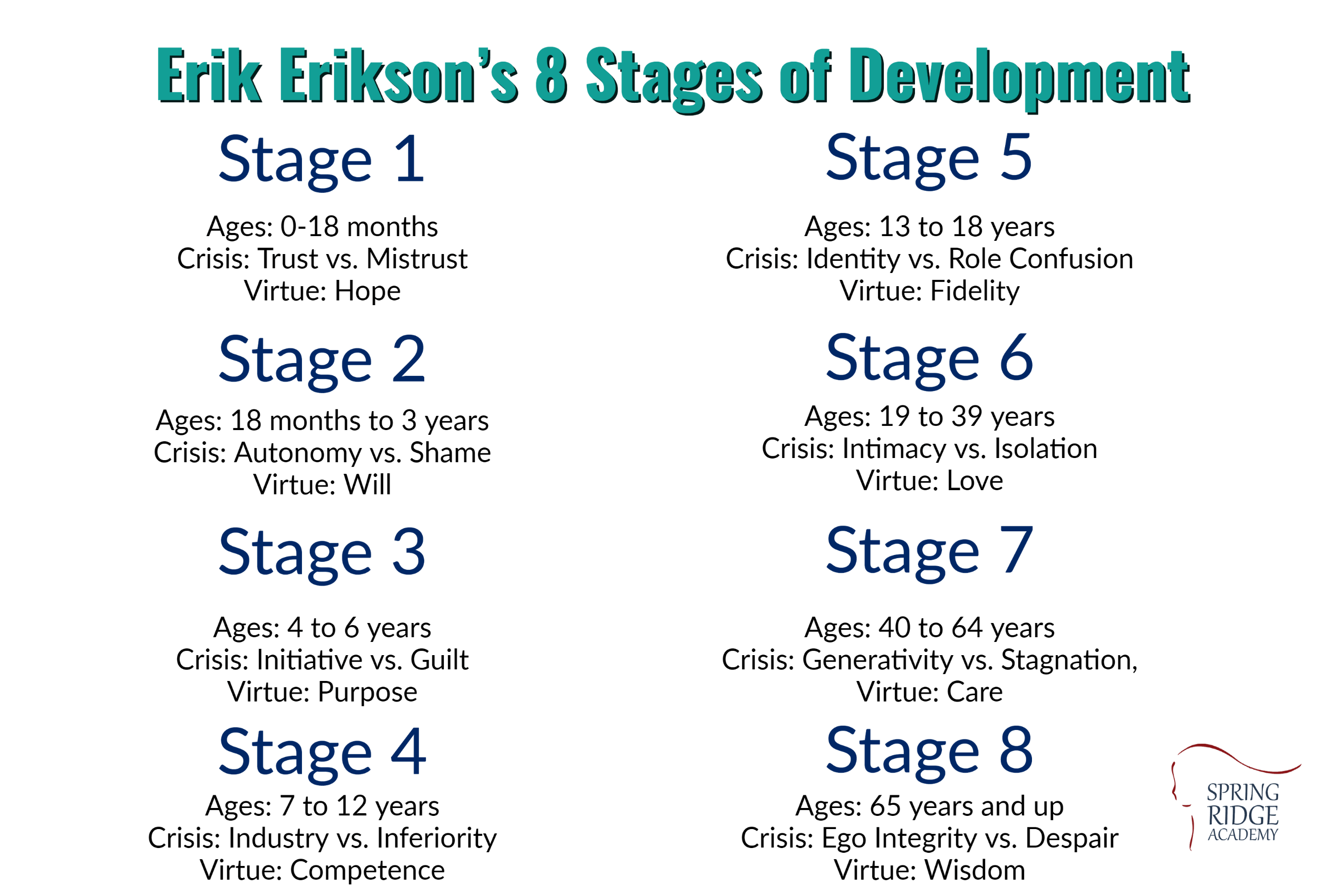A Brief Overview of Erikson’s 8 Stages of Development
Erik Erikson published the book Childhood and Society, where he described eight stages of psychosocial development, and he assigned the ages in which he felt the challenges were most critical.
In 1950, Erik Erikson published the book Childhood and Society, where he described eight stages of psychosocial development, and he assigned the ages in which he felt the challenges were most critical. Erikson noted that in each stage, a human being faces a challenge or, as defined by Erikson, a “Psychosocial Crisis.”
Saking menjamurnya situs yang menawarkan permainan judi poker idn, setiap kita mengunjungi web tertentu hampir pasti akan ada iklan tayangan iklan tentang situs agen poker IDN Play. Setiap situs poker online menawarkan kelebihannya masing-masing. Namun, hanya NirwanaPoker yang layak kami rekomendasikan menjadi situs tempat anda bermain. Ayo segera daftar dan dapatkan link download apk idn poker terbaru di situs NirwanaPoker.
Although the word “crisis” denotes some level of danger or dysfunction, Erikson uses the term in more of Darwinian nature: The person is pushed toward growth and adaptation. He suggested that individuals must navigate through environmental, biological, and social forces (relationships) in each stage.
A favorable outcome in each stage created what he called a “virtue” or strength. An incomplete or negative outcome in a stage was likely to impact future stages and make it more challenging to function as an individual moves through their life cycle. Erikson acknowledged that a person might work toward or revisit these challenges throughout their life cycle.
Each “Psychosocial Crisis” is represented as one vs. another. Erikson described that success in a stage was more about balancing both sides of the equation rather than attaining one or the other. For example, someone in stage 5 must balance developing an identity (values, roles, beliefs) and resolving role confusion. This ability to accept role confusion serves later as roles change throughout one’s life. For example, when a person becomes a partner in a relationship or a parent. The ability to deal with role confusion allows us to adapt to the new roles successfully.
Even when a virtue is achieved, it may introduce new challenges later. For example, a person may achieve competency. Still, it may impact identity when their achievements define their identity (I am what I do vs. I am who I am). Often this reflects less of an issue with the stages of identity or industry but of an earlier stage that they did not successfully navigate. In this case, competency may have become a way of adaptation around a previous stage. For example, one may surmise, “If I can achieve on my own, I don’t need to trust others” (Stage 1). When a previous stage is incomplete or unresolved, a person may have to resolve that stage before successfully achieving success in their current stage.
As a caregiver or parent, understanding these stages and strategies allows us to recognize where a child is in their development or recognize how events in the past may have impacted development. It also informs them of their developmental strategies and allows them to recognize their regression.
When we regress toward a previous stage, we often use childish strategies (i.e., temper tantrums) to resolve adult or young adult problems. This is called developmental immaturity. Learning parenting strategies to support development and recognize regressions allows us to better respond to children and ourselves.
More Information:
Stage 2: Autonomy vs. Self-Doubt
Stage 4: Industry vs. Inferiority
Stage 5: Identity vs. Role Confusion
Childhood and Society by Erik Erikson
Erik Erikson’s Stages of Psychosocial Development
Erik Erikson—Harvard University
Penasaran dengan apa sih yang disebut dengan istilah Data Macau? Simak berikut ini..
Data Macau adalah rekapitulasi result acara live draw pengeluaran angka pemenang Toto Macau 4D hari ini yang selalu diupdate secara berkala. Biasanya update data keluaran Macau ini dilakukan segera setelah acara live draw Macau Pools mengeluarkan result angka pemenang yang resmi pada periode tersebut.

